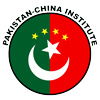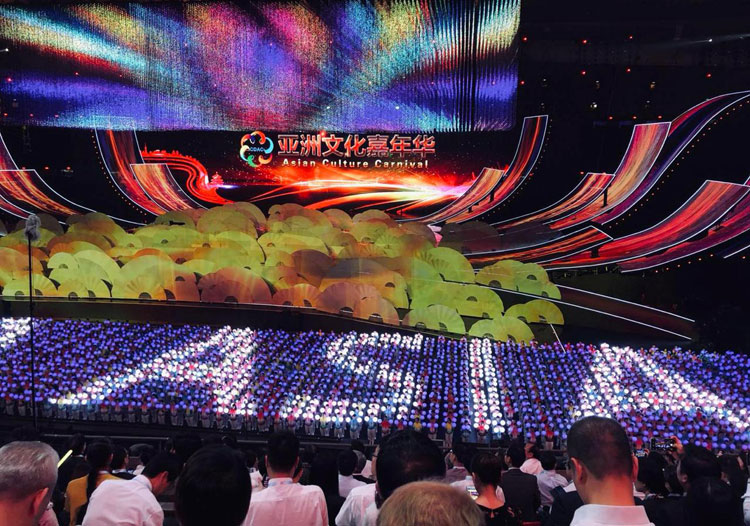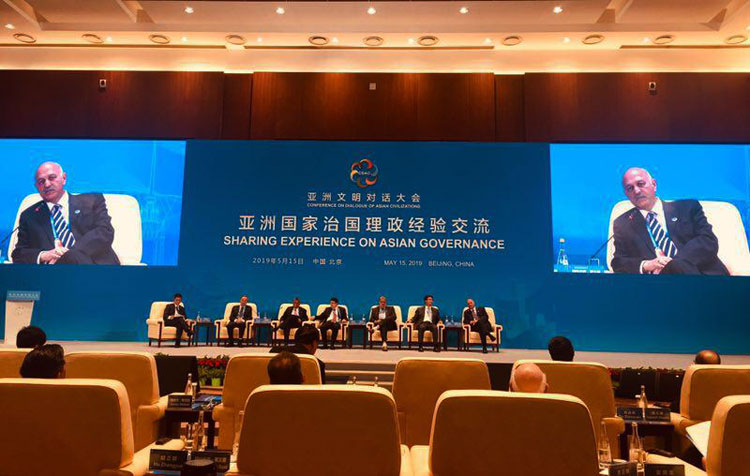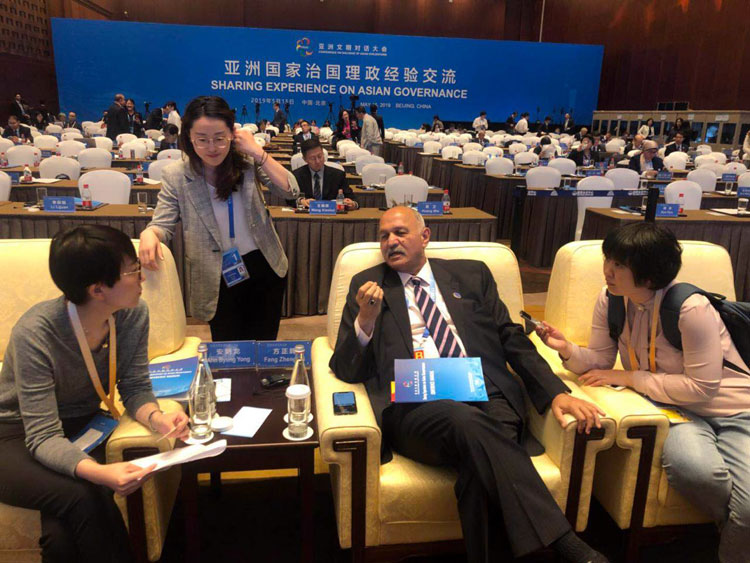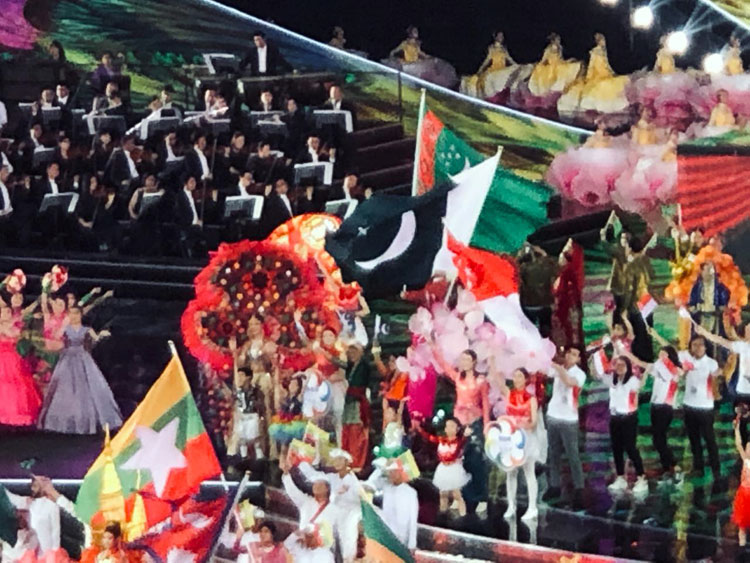China pushes Asian Resurgence through Corridors, Culture & Connectivity
Source : PCI Date : 22-05-2019
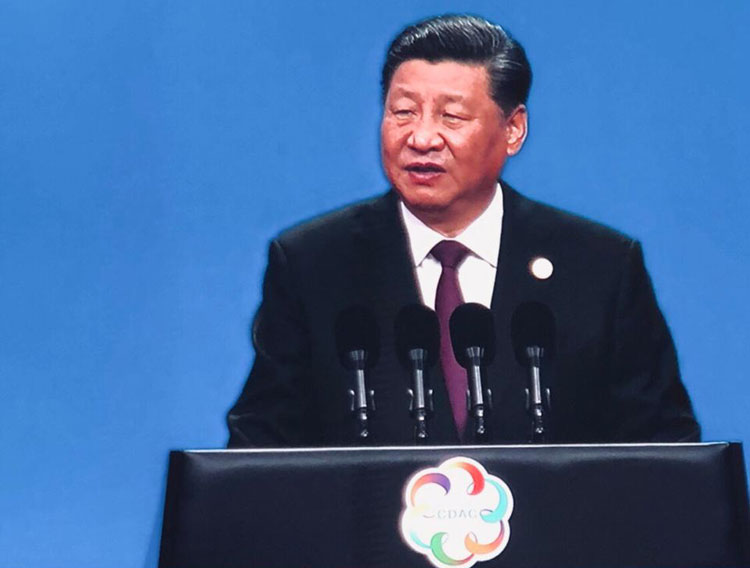 |
|
|
To mark the 40th anniversary of China's Reform and Opening up Policy, initiated by the great visionary leader Deng Xiaoping in 1978, The New York Times started a series of articles on November 18, 2018, beginning with the title, 'The Land that Failed to Fail'. Since the Communist Party of China launched a unique experiment of 'socialist market economy', The New York Times wrote: 'The West was sure the Chinese approach would not work. It just had to wait. It's still waiting'!
Chinese wisdom, rooted in an uninterrupted 5000 year old civilisation, was on display last week in Beijing when the first Conference on Dialogue of Asian Civilisations (CDAC), hosted by President Xi Jinping convened with over 50 Asian countries in attendance, at a unique and imaginative demonstration of 'soft power'. Perhaps, it was the first time ever that President Xi Jinping personally participated in three different events of the same Conference within a 24-hour span: the welcoming banquet at the Great Hall of the People on the evening of May 14, the Inaugural on the morning of May 15 and the amazingly creative Asian Culture Carnival on the night of May 15, with 1000 artistes from 50 countries, ranging from Jackie Chan to the popular Italian tenor Andrea Bocelli's rendition of 'Nessun Dorma'. Pakistan had singer Shiraz Uppal sing a famous song, while India's Bollywood icon, Aamir Khan, was also in attendance.
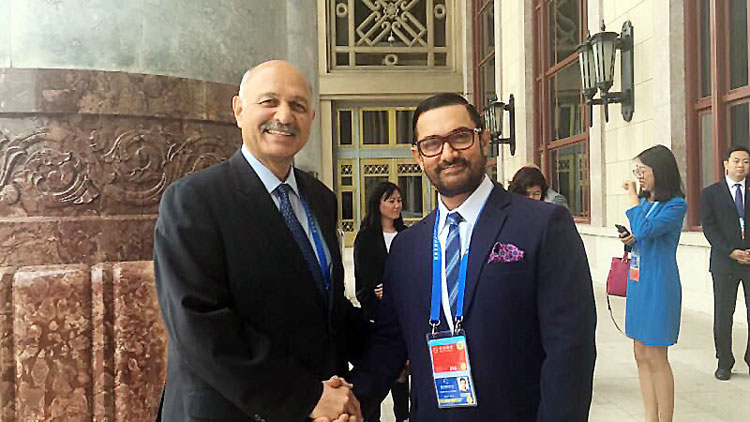
Senator Mushahid Hussain Sayed, Chairman of Pakistan-China Institute (PCI) and Chairman of Senate Foreign Affairs Committee, meeting Bollywood Actor, Aamir Khan
This 'unity in diversity' theme was also evident in President Xi Jinping's inaugural address at the CDAC. He referred to the 'Arabian Nights' fable, lauded the grandeur of the 'Great Wall of China and the Great Mosque of Mecca', mentioned historic civilisations that sprang from mighty rivers like the Indus, Euphrates and the Yangtze plus those that once dominated Afro-Asian historical and cultural landscapes like Samarkand and Egypt, and added that the 'Chinese Civilisation has been enriched by Buddhism and the confluence of Islam and Confucianism'.
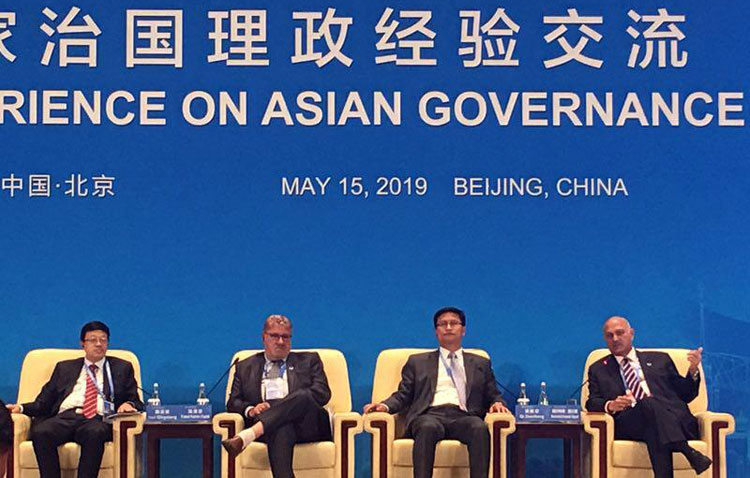
Senator Mushahid Hussain Sayed's speech at the panel 'Sharing Experience on Asian Governance' at the Conference on Dialogue of Asian Civilisations
Interestingly, the CDAC followed by a fortnight an earlier mega-event in Beijing, also hosted by President Xi Jinping, which was the 2nd Belt and Road Forum, where 37 foreign leaders and over 1000 guests participated. The theme of the 2nd BRF was 'Green Development' with China now taking a lead in Climate Change, unlike the US, which has withdrawn from the 2015 Paris Climate Accord.
In fact, it can be said that these twin initiatives, the BRF and the CDAC, are separate but related in a common purpose. The Belt & Road Initiative (BRI), with over 70 countries woven together via economic connectivity through 6 Corridors is about people-centric development, while the CDAC is about people-to-people cultural connectivity.
With China getting ready to celebrate the 70th anniversary of the founding of the People's Republic of China on October 1, 2019, China's worldview in the multipolar 'Asian Century' is based on the twin pillars of promoting economic connectivity driven by energy and ecology, ports and pipelines, roads and railways, and cultural cooperation through forging people-to-people connectivity, particularly amongst youth, media, academia, think tanks and tourism. In 2018, 160 million Chinese went abroad, while 140 million foreign tourists visited China.
During her keynote speech at the CDAC, the Director General of UNESCO, Ms Audrey Azoulay, had an apt quote from the famous Arab traveller, Ibne Batouta, who travelled to China in the 14th Century: 'Travelling leaves you speechless, then turns you into a storyteller'!
Ironically, while a country like China, led by the Communist Party, is today the biggest exponent of Globalisation, free trade, openness and peacefully reaching out politically, culturally and economically, as in the words of President Xi Jinping, 'economic growth sustains a civilisation', conversely, the United States is promoting protectionism, building barriers and walls, becoming insular and still resorting to military might to pursue its goals, with the sabre-rattling in the Persian Gulf a recent example.
The difference in these two visions is quite glaring.
This contrast was also summed up in a recent conversation that President Trump had with former President Jimmy Carter, which the latter mentioned publicly on April 18 to his local Church gathering in Plains, Georgia. President Trump expressed his concern about China's growing economy, telling Jimmy Carter that 'China is getting ahead of us' (meaning the United States).
Carter's poignant reply to Trump brings out the yawning chasm between the visions and policies pursued by Washington and Beijing: 'since 1979, China has been at war with nobody, and we (the US) have stayed at war'. Carter added somewhat bluntly that 'the US is the most warlike nation in the history of the world', while 'China has not wasted a single penny on war, and that's why they are ahead of us in almost every way'.
Hence, it is no accident that after the CDAC, at a Followup conference in Nanjing on May 18, when the results of an international opinion survey on the 5-year old BRI were unveiled, based on public opinion in Asian and other countries, there was a resounding affirmation of the positive features and benefits of the BRI amongst the participating countries, with Pakistan leading amongst those that enthusiastically support the BRI. Italy is the first G-7 country to join BRI. Not surprising, given the fact that China-Pakistan Economic Corridor (CPEC), as the centrepiece of BRI, is a success story having delivered with development and jobs, and now entering the second phase with a broader perspective ranging from agriculture to poverty alleviation, tourism to culture, and special economic zones (SEZs) now underway.
A remark by a survivor of the Nanjing Massacre, which saw 300,000 Chinese massacred by the Japanese Army during 1937-38, summed up the Chinese approach to the future, which is prominently displayed at the Nanjing Massacre Museum: 'Remember history, but not with hatred'!
Moving on to build a better future, without being hostage to the mistakes and Cold War mentality of the past, is the way forward for Asia and, indeed, for the world at large. Asian hands are finally shaping the future of Asia!
(Senator Mushahid Hussain, Founding Chairman of the Pakistan-China Institute (PCI), attended both the 2nd Belt & Road Forum on April 25-27, & the First Conference on Dialogue of Asian Civilisations on May 15, in Beijing, hosted by President Xi Jinping).
